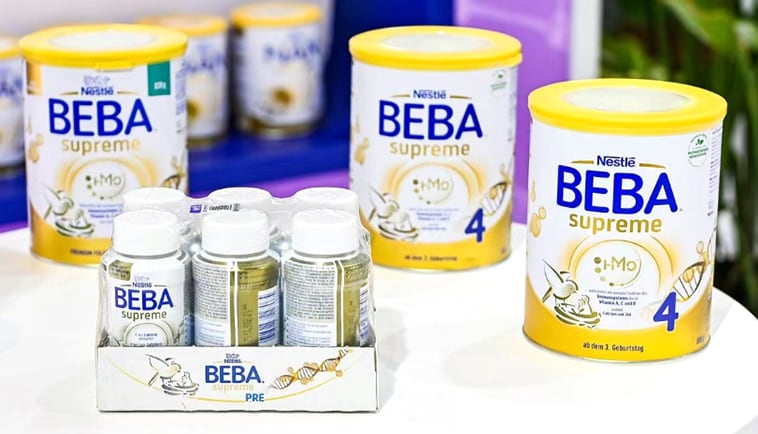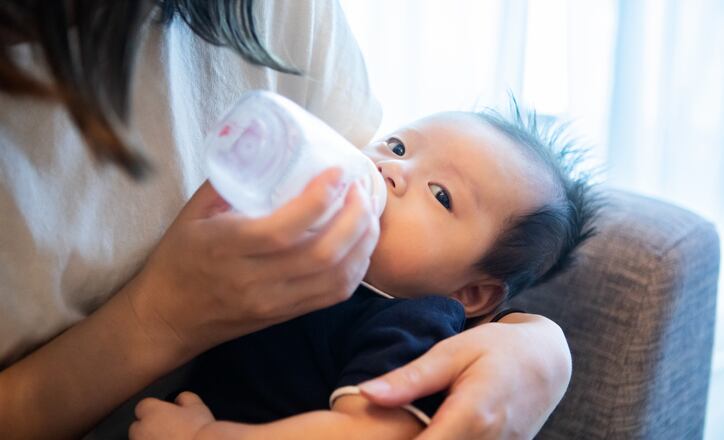The study showed that 64.6 per cent of the pregnant women had consumed such milk formulas.
A total of 268 pregnant women in their second and third trimesters were interviewed between May and July last year.
Based on the findings, it was found that more than half (53.7 per cent) of these women interviewed believed that drinking milk formulas meant for pregnant women would make their child smart and healthy.
Even respondents who did not consume such products agreed that most pregnant women they knew were taking these products, with seven in 10 saying that most pregnant women they knew were consuming milk formulas for pregnant women.
“We found that CMF‐PWs (commercial milk formula for pregnant women) are widely used by pregnant women in Vietnam.
“Different regression models consistently show that the use of these products is strongly associated with the belief that these products are beneficial for the mother and/or the child, and the perception that other pregnant women use CMF‐PW. This association is strongest among recent users of CMF‐PW,” the researchers said.
The study was conducted in one northern province, one southern province and one municipality in Vietnam.
Most of the respondents (34 per cent) were small traders or were self-employed and a quarter were unemployed or homemakers or students.
For the remaining respondents, one out of five held a white-collar job while 19.4 per cent held a blue-collar job.
The study was funded by the Bill and Melinda Gates Foundation and Irish Aid.
Unsurprising findings
These findings were “unsurprising”, said the researchers who came from Hanoi University of Science and Technology, Da Nang Hospital for Women and Children, breastfeeding advocacy organisation Alive & Thrive, non-profit organisation FHI 360, and Australia’s Deakin University.
“These findings are unsurprising when we consider the aggressive tactics used to market CMF in Vietnam.”
They explained that these products have used “nutritional positioning” to appeal to parents’ emotions and aspirations for their unborn child.
“CMF-PW labels highlight specific ingredients and their biological functions, which are used as nutrition and health claims for the child, pregnant woman, and mother.”.
The researchers gave the example of Similac Mom Eye‐Q by Abbott, where the icon of an “Eye‐Q Plus” droplet on the product label was used to convey that the ingredients used could enhance vision and intelligence.
Other examples cited were Duty Lady Mama, which claimed to contain five important nutrients to aid infant growth, and Dielac from Vinamilk, which made claims including prevention of anaemia, osteoporosis, birth defects, and supporting brain development.
However, the researchers stated that: “Commercial milk formula for pregnant women is an expensive, ultra-processed food with a high concentration of sugar, the consumption of which may be linked to negative health outcomes.”
They also argued that several brands have used images of infants or foetuses on advertisements for CMF-PW, which they said was prohibited under Vietnamese regulations.
Beliefs and background
Pregnant women with primary school education and are blue-collar workers tend to believe that CMF-PW is beneficial for their unborn child.
A higher gestational age is also associated with an increased likelihood of consuming these products.
Modes of exposure
Nearly three in 10 of the respondents said they were exposed to the promotion of CMF-PW in the past 30 days prior to the interview.
These products are promoted via group meetings such as prenatal classes, events, competitions, lucky draws, and one-on-one virtual consultations through social media.
In addition, 18.3 per cent of them reported being approached by a CMF industry representative who promoted CMF or collected personal information from them during their gynae visits.
Despite their criticism, the researchers had to acknowledge that the National Guideline on Nutrition for Pregnant Women and Lactating Mothers in Vietnam recommends CMF-PW over other milk and dairy products, based on the idea that CMF-PW is “scientifically produced to meet increasing nutritional demands [energy, nutrients] during pregnancy and lactation periods” and that “[women] should choose clinically proven products”.
Nevertheless, the researchers countered that the policy was ‘influenced’ by the industry and was drafted based on industry-sponsored research.
Source: Nutrients
Beliefs and Norms Associated with the Use of Ultra-Processed Commercial Milk Formulas for Pregnant Women in Vietnam
https://doi.org/10.3390/nu13114143
Authors: Tuan T. Nguyen et al





